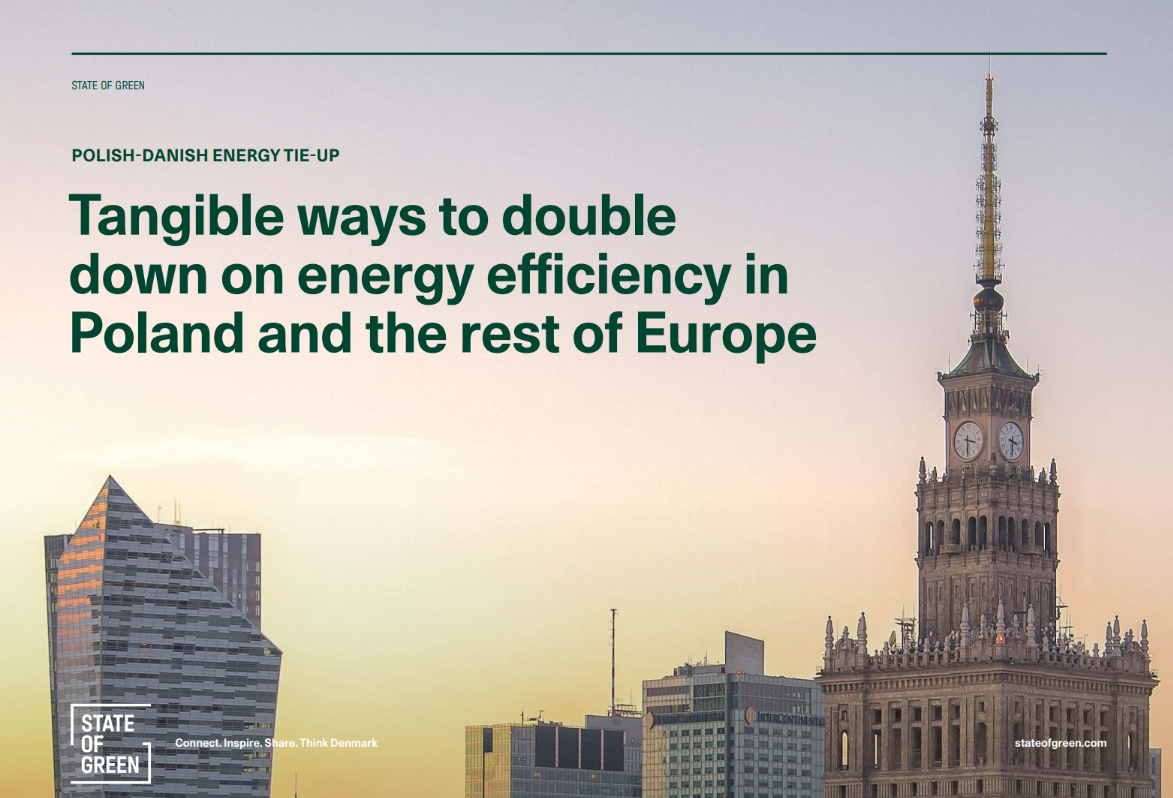Solution provider

Ramboll is a leading international architecture, engineering, and consultancy company, owned by the Ramboll Foundation.
Case
District energy
District heating
Energy efficiency
+1

Ramboll is a leading international architecture, engineering, and consultancy company, owned by the Ramboll Foundation.
Add the case to your visit request and let us know that you are interested in visiting Denmark
Veolia is one of Poland’s major heat generators and suppliers, supplying district heat to a large percentage of Polish households. This includes, among other, Veolia term, whose district heating networks cover a number of cities and towns throughout the country. However, like in most of Poland’s energy sector, those local facilities carry the burden of the past: in 2020, nearly 90 percent of Veolia term’s heat generation assets outside of big cities operated on coal.
With the advent of Poland’s new energy policy, so-called PPE40, and the European Green Deal aimed at reaching climate neutrality in the EU by 2050, it became mandatory and more pressing than ever to implement green transition in Veolia’s almost 50 local district heating plants throughout the country, while keeping in mind the varied local conditions and economic challenges.
In 2020 Ramboll Poland assisted Veolia with the developing a decarbonisation strategy for Veolia’s Polish district heating assets. While the modernization of district heating networks themselves would remain within the expertise of Veolia, Ramboll was entrusted with the task to analyse all the systems from the energy generation point of view, focusing on fuels that can replace coal, best suited to each district heating plant and still ensuring economic viability of the transformation, both for Veolia and for the end consumers.
With over 30 years of experience in energy transition within the heat and power sector, Ramboll’s Polish engineers compiled an overview of over thirty technologies and variants of non-emission or low-emission fuel types and technologies that could be applied in phasing out coal, either as target solutions or as transition fuels. These included a variety of options based on natural gas, biogas, biomass, RDF, heat pumps, waste heat use, black pellets, solar collectors, electrode boilers, heat accumulators, hydrogen, geothermal sources and ORC. In the next step they narrowed down the list to the options that were technically and economically viable in 2020. Then came the arduous task of analysing the local conditions for each of the 48 heat generation plants, taking into account the heat demand in the area, heat market forecasts, plant’s operation profile, existing modernisation plans, fuel acquisition and transport possibilities etc. against the legal and regulatory background, and creating detailed technical concepts and business plans for each heat generation facility.
The study indicated that it would be possible to completely phase out coal in Veolia’s Polish heat generation assets by 2030, using a mix of target and transition-phase fuels to ensure the security and flexibility of heat supply along with economic feasibility. This paves the road for reaching complete climate neutrality by 2050, with transition fuels to be replaced at the later stages with new alternative technologies that would have by that time reached technical, regulatory, and economic maturity. The solution included a focus on improving variability and flexibility, both in terms of fuels and technologies and in terms of income sources suggesting incorporating cogeneration into some of the systems.
In addition, Veolia received 48 ready-made business plans mapping the course of action to be taken at each facility, with expected CAPEX and OPEX, and a realistic time schedule to facilitate each transformation project. In 2021 work towards implementing decarbonisation programmes started in Veolia terms and the processes are currently ongoing in most of the plants.
As climate legislation constantly improves in both Europe and Poland, Ramboll Poland was contracted to prepare an updated version of Veolia’s decarbonisation strategy in 2023. The updated plan should reflect current regulations and conditions and to ensure that Veolia can stay ahead of any changes that may impact the important process of reaching climate neutrality in Poland.

This case is a part of the publication: “Polish-Danish energy tie-up: Tangible ways to double down on energy efficiency in Poland and the rest of Europe”
Discover the publication